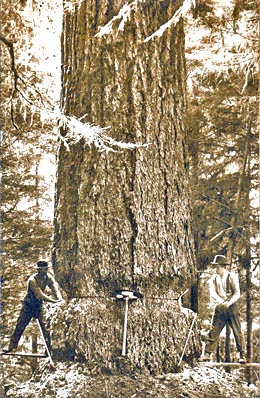In May 1913, loggers in Grays Harbor County and vicinity vote to strike. The strikers are members of the Forest & Lumber Workers Union of the Industrial Workers of the World (IWW). The strike vote follows a successful 1912 strike of mill workers in and around Hoquiam. This time though, the strike is short-lived and unsuccessful.
For Dry Clothes and a Warm Bed
The union put out a ballot in all logging camps in the area on whether or not to strike for the following demands:
- a minimum of $3 for an eight hour day;
- clean, sanitary bunkhouses with no top bunks and having springs, mattresses, and bedding furnished free of charge;
- all camps to be supplied with baths and dry rooms (rooms to dry the wet clothing of loggers who worked in the rain);
- an end to employment fees.
The vote to strike was 85 percent in May, but by July the effort had dwindled and on July 3, 1913, the strike was called off for lack of pickets.
Employers Organize
During the next two years the Wobblies (the nickname for members of the IWW) had increasing difficulty organizing within the lumber industry. Lumber owners aggressively fought union loggers, employing detectives in the logging camps, and excluding union sympathizers. Employer organizations such as the West Coast Lumberman's Association, formed in 1911, had increasing success in persuading town officials to hound and harass Wobblies. A recession at the end of 1913 didn't help.

